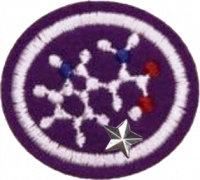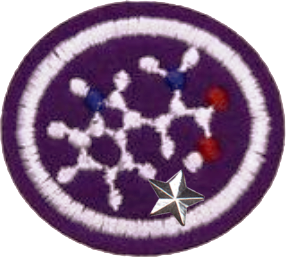AY Honor Biochemistry - Advanced Answer Key
From Pathfinder Wiki
< AY Honors | Biochemistry - AdvancedAY Honors/Biochemistry - Advanced/Answer Key / (Redirected from AY Honor Biochemistry - Advanced Answer Key)
Biochemistry - Advanced
Skill Level
3
Year
2012
Version
27.10.2025
Approval authority
South American Division
1
Have the Biochemistry honor.
For tips and instruction see Biochemistry.
2
Define the following terms:
2a
Synthesis
2b
Anabolism
2c
Catabolism
2d
Reduction
2e
Oxidation
2f
Photosynthesis
2g
Hormone
3
Other than energy provision, what other functions do carbohydrates have?
4
How are carbohydrates classified?
5
What are the consequences of lack of glucose in the body?
6
To keep glucose rates constant, in the fasting period, the body is able to produce this carbohydrate. How does the gluconeogenesis pathway occur?
7
What is the importance of the hormones insulin and glucagon in the human body?
8
How does an individual's metabolism fast?
9
How is an individual's metabolism well-fed?
10
What disease is a result of lack of insulin production? What are the main characteristics of this disease?
11
The excess carbohydrates and amino acids accumulate in the body through its conversion into lipids. How are lipids synthesized in the body? Where are they stored?
12
What are the types of lipids in humans?
13
Amino acids are produced by living things. The so-called producers are able to synthesize the 20 essential amino acids, mammals can synthesize only a few. What are the precursors used for amino acid synthesis?
14
How do mammals get the amino acids they are not able to synthesize?
15
Make a table with the biosynthetic families of amino acids, according to metabolic precursors.
16
The amino group is very important for the synthesis of amino acids. How do you get this amino grouping? Explain the Cycle of Nitrogen.
17
Nitrogen fixation is very important, certain bacteria do this. Some live in symbiosis with legumes. Explain how the symbiosis between bacteria and legumes occurs. Associate legumes and nitrogen fixation with crop rotation.
18
How does photosynthesis happen and what is its importance for life on Earth?
19
What factors affect photosynthesis?
20
What are the organisms capable of photosynthesis?
21
Carbon is a very important atom for all life forms. Explain the Carbon Cycle.
22
What is the relationship between DNA, RNA and proteins?
23
What are the applications of DNA studies?



